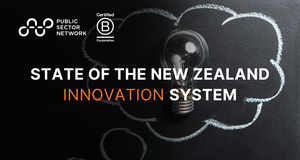Tell us about the journey to your current role and what it this role entails?
I am currently the Program Manager of the Queensland Police Service (QPS) Advanced Data Analytics Capability (ADAC) initiative. ADAC is leading the provision of insight and foresight focused analytics capabilities that support the QPS to make enhanced strategic, tactical and operational evidence-based decisions. A qualified statistician with a Bachelor of Science majoring in Statistical Computing and a Master of Applied Statistics, I began my professional career in the early eighties at Macquarie University, firstly as a research assistant, then as a full-time Associate Lecturer within the Statistics Discipline of the School of Economic and Financial Studies. In 1986, I helped form the Statistical Computing Laboratory Pty Ltd. This company, now based within the Graduate School of Management at Macquarie University, provides statistical consulting services to a wide variety of public and private organisations. In late 2000, I formed my own consultancy company aimed at providing information management consulting services to both Corporate and Government sectors. In parallel, I was the National Product Support Manager and Professional Services Manager for CiTR, joining them after a 3-year stint with Professional Services; the quality assured business-trading arm of the Cooperative Research Centre, the Distributed Systems Technology Centre (DSTC), joining them in July 1997 after a seven-year career with Queensland Health. Since mid-2003, I have held a variety of public sector roles within the Queensland Public Safety Portfolio, having worked at the Department of Emergency Services, the Department of Community Safety, the Public Safety Business Agency and currently at the QPS. I have over 10 years consulting experience and over 17 years program and project management experience in information management related fields. In addition, I have over 7 years academic experience and over 35 years ICT experience.Can you describe a project you are working on or recently completed? What challenges did you face along the way and how were they overcome?
Throughout my career, Ive been in project positions that could steer and implement change, recognising that any such change must deal with uncertainty and must deliver on intended results before successful closure. An example of this was my lead role in the then Queensland Fire and Rescue Services (QFRS) State Incident Management Team (SIMT) Mobile Office. This was essentially a portable mobile office environment used as part of a cache of equipment for the SIMT team, a pre-identified team of multi-disciplined emergency services professionals able to be deployed to manage major incidents or events. Initially developed in 2003, its first major use in anger was in 2006 during Cyclone Larry. It not only provided the frontline officers with technology and information services to respond immediately after the event, it was able to provide the community with electronic communications for several months until all telecommunications services were restored. To make this happen, I employed several strategies to overcome any challenges and achieve the eventual business outcomes:- Identification of critical success factors (i.e. delivery of situational awareness capability).
- Valuing specialist skills and capitalising on knowledge (i.e. building a unified complementary team from many disciplines).
- Continuous improvement (i.e. taking operational stakeholders on a journey that incrementally demonstrated benefits and hence supported continue investment over several years).
- This type of deployable resources has been refined over many years and is now commonplace with the Queensland public safety environment community.
What did you learn from this project? What did it achieve?
One of my principal learnings which has now become a core work value is to - always provide impartial and forthright advice. Personal ego has no place in a team environment. I am driven by a professional ego to always learn and improve myself, to deliver the best possible outcomes for my organisation, no matter what challenges are placed before me. I also learnt the importance of organisational change and the need to work within a framework of iterative and continual incremental improvements. In hindsight, the most valued part of the project was the journey and making that journey pleasurable for those around me. To achieve the desired outcome, was never about the measurable are we there yet, as each operational scenario provided valuable insight into what could be improved or even, what didnt work in certain situations. In taking this approach, we developed a physical location to store the mobile office when not in operational use so that automation ensured everything was fully patched and functional for deployment. We also were able to adapt this capability in the field. For example, this capability, which leveraged off satellite and wireless technology, might be deployed within a community with many high-rise buildings an intent that was never originally identified, but given the agile approach of the project, we were able to adapt and find solutions that became part of the long-term cache of equipment.What excites you most about the future?
Personally, I think retirement will be exciting watching the world go by rather than trying to keep up with technology and change that to a degree has consumed by professional career. Professionally, what excites me is what may be possible with the capabilities we are developing as part of ADAC. I look extremely forward to being able to see how the capabilities we are developing will help police reach insights quicker, to be able to be proactive in preventing and solving crime. My level of excitement, at any time both personally or professional, will be an internal tussle which I welcome. For now, professional has got the upper hand, but personal is certainly punching above its weight.If you could give one piece of advice to someone looking to further their career in government, what would it be?
The public service in many ways has changed so much since I initially joined in 1990. That said, there is a lot that hasnt changed at best you can say, its just different. My advice would be to not look at government as simply a career, as opportunities are far more expansive outside of government. Look at government as being a valuable component of your professional development and the making of lifelong relationships. Government is not the end game! But it should be a part, (small or large) of your overall professional career.Where do you look to for further education? E.g. articles, podcasts, news sources, online courses, university etc.?
In my earlier career it would be towards the structured avenues such as formal courses, universities and seminars. Since then, for most of my career, I dont distinguish education from experience, so I also add to this, secondments, projects, etc. In the latter part of my career, I tend more towards the self-paced and explorative education that is provided through podcasts, journals, electronic media (news sources and articles) and professional group memberships or participation.What are you most looking forward to at the event?
I am most looking forward to interacting with the other attendees. Hearing the presenters, listening to experiences, meeting new people that have a common interest, and most importantly, learning for others. In summary, I hope this event will lead onto other such events and that relationships can be formed that will be either ongoing, and/or part of future events.

















